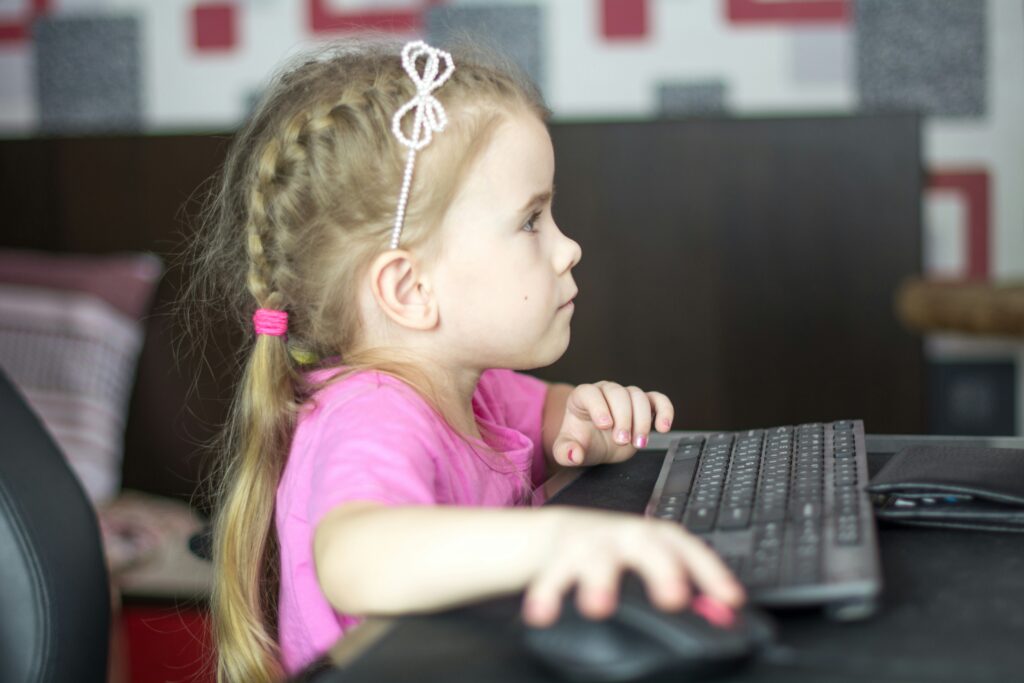How Learning to Code Builds Problem-Solving, Creativity and Confidence
At Educate Excellence, we know that the world is changing fast, and the skills students need to succeed are changing with it. One of the most exciting and valuable skills children can begin to learn in primary school is coding. While it may sound technical, coding is simply a way of giving instructions to a computer, game or robot to make it do something.
In this blog, we explore what coding looks like at different primary ages, why it matters for your child’s development, and how you can encourage it at home even without any tech experience.
What Is Coding?
Coding, also called computer programming, is the process of creating a set of instructions that a computer can understand. These instructions can:
-
- Make characters move in a game
- Tell a robot how to move
- Create a simple animation or website
- Solve maths problems
- Automate repetitive tasks
In primary school, coding is often taught through fun, visual platforms such as Scratch, Bee-Bots or Blockly. These tools use blocks, pictures and patterns rather than complex text, making it accessible and enjoyable for young learners.
Why Coding Is Great for Primary Students:
1. Builds problem-solving skills
Coding teaches children how to think logically, spot errors and fix problems. These are key skills in maths, science and real life.
2. Encourages creativity
Children can design games, animations or interactive stories. Coding is a mix of logic and imagination.
3. Supports early maths and reading
Coding helps children practise sequencing, patterns and simple commands, all of which support numeracy and literacy.
4. Fosters independence and confidence
Creating something from scratch gives children a real sense of achievement. It encourages trying, failing and trying again, a vital part of learning.
5. Prepares students for future opportunities
As technology continues to grow, understanding coding opens doors in many fields, not just tech, but medicine, art, architecture and beyond.
What Coding Looks Like in Different Year Groups:
Years 1 to 2
-
- Using simple robots like Bee-Bots
- Giving clear directions to complete a path or maze
- Playing logic and sequencing games
- Understanding cause and effect (e.g. “If I do this, the robot will move forward”)
Years 3 to 4
-
- Using platforms like Scratch Junior or Lightbot
- Creating basic animations or interactive stories
- Understanding loops, actions and simple events
- Exploring how computers follow step-by-step instructions
Years 5 to 6
-
- Writing more advanced code with Scratch or Blockly
- Creating games or simple apps
- Learning about variables and conditional statements
- Working on multi-step projects independently or in pairs
How to Encourage Coding at Home:
1. Use free online tools
Websites like Scratch, Code.org and Tynker offer free games and lessons for children of all ages.
2. Try coding toys or kits
There are child-friendly tools like Osmo, micro:bit and LEGO robotics that make coding hands-on and fun.
3. Watch educational videos
Many coding websites offer short videos explaining how code works in cartoons, apps or games.
4. Turn coding into a story
Ask your child to create a character, write what they want it to do, and then help them make it happen using a coding platform.
5. Celebrate small wins
Even a blinking light or moving sprite is a great achievement. Praise the process, not just the result.
How Educate Excellence Supports Coding Skills:
While we focus on core subjects, many of our tutors encourage logical thinking, creativity and problem-solving through enrichment topics like coding. We help students:
-
- Break down complex tasks into steps
- Follow instructions accurately
- Think critically and fix errors
- Use technology in a safe, confident way
- See how coding connects to maths, science and real-world learning
Whether your child is new to coding or ready to explore further, we support a personalised learning journey that grows with their interests.
Coding Is for Everyone:
You do not need to be a computer expert to support your child in learning to code. With the right tools, encouragement and a sense of fun, even young children can develop the skills to create, solve and explore through coding.
If your child is interested in coding, or you’d like to build their confidence in problem-solving and tech-based learning, Educate Excellence is here to help. Our tutors can guide students in building skills for today’s classroom, and tomorrow’s world.

